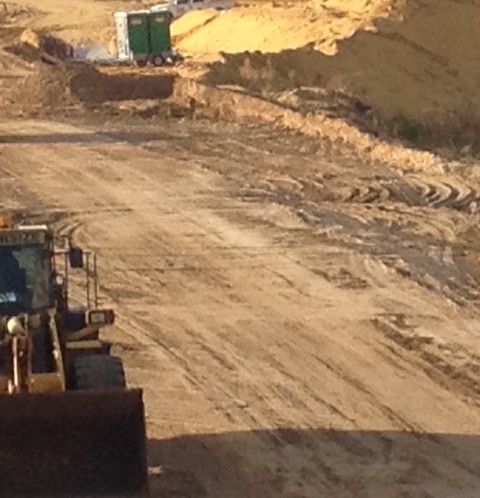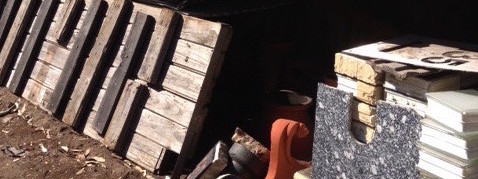freeway extensions clear vegetation and mulch ready for reapplication on site

To generate a new road, preliminary site works are carried usually involving the destruction of vegetation and leveling of the dirt underneath. The topography determines whether lots of material are taken away from, or brought to the site. Currently (2016) the Mitchell Freeway North (under Main Roads WA (MRWA)), is being extended from Currambine to Butler. It’s refreshing to see the vegetation mulched in preparation for future use on site, rather than previous times where trees were felled and burnt as fallen.
According to Colin Leek, City of Canning Engineer, MRWA uses limestone and quarried granite roadbase from a number of hard rock quarries around Perth. Local authorities do the same. Some, like Belmont, Swan and Serpentine-Jarrahdale, use laterite gravel. City of Canning uses recycled crushed concrete almost exclusively.
In order to encourage local authorities to use recycled materials, the Dept of Environment and Regulation in WA offered financial incentives from 2017 to adopt these materials. However, there is a proviso: extensive testing for contaminants must be carried out before monies are given*. This effectively uses all the financial incentives offered to the councils, so there is caution about taking up the scheme thus far. Private sector and regional councils can also apply for funds to use
Private sector and regional councils can also apply for funds to use waste-derived material (WDM), however this is under a competitive funding application. For each local authority, there is a notional amount available in each funding round, (a total of $8 million) with a bonus if the Council adopts a policy to support the use of WDM.
*Guidelines for Submitting Application to use Waste Derived Materials



